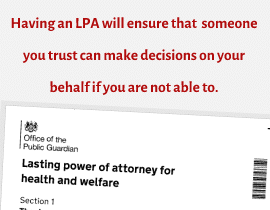Assets above the Nil Rate Band NRB
Life Interest / Interest in Possession Trusts
For married couples or civil partnerships the Interest in Possession Trust could be utilised to cater for the residue over and above the Nil Rate Band.
The Interest in Possession Trust can provide the flexibility for the surviving spouse (or any other appointed Trustees) to release capital from the Trust as needed for his or her benefit or to release to the children or other specifically named beneficiaries.
Whilst initially the surviving spouse only has a right to income or use of assets, this “interest in possession” means that for Inheritance Tax purposes, the assets are deemed in the surviving spouse’s estate and so taxed upon second death.
Much depends on the planning decided with regards to the Properties and their ownership as to how much could be directed into the IIP Trusts. Having said that, the theory is that it would be the balance of assets in each individual’s estate above the Nil Rate Band which would be directed to them.
Assets receive the guaranteed protection of the trusts on first death, a second death may occur many years later and we have no idea what legislation may be in place at that time. So we advise to maximise the opportunities that we know exist today.
Additional Inheritance Tax planning can be achieved by the surviving spouse should he/she give up all or part of his/her life interest.
Should he or she give up all or part of her life interest then this is treated as a Gift.
However, the surviving spouse loses access to these funds and needs to live for 7 years for the strategy to become fully effective.
Should he or she survive the necessary 7 years, the asset then escapes Inheritance Taxation upon second death.
The proposed strategy is designed to provide maximum flexibility and opportunity for further Inheritance Tax mitigation, decisions can be made by you today or dependent on the surviving spouse’s position at that time.
Possibly not a decision the surviving spouse would make in whole, but the decision does not need to be taken until after the first death. Speak with Templar Estate Planning for more information.




